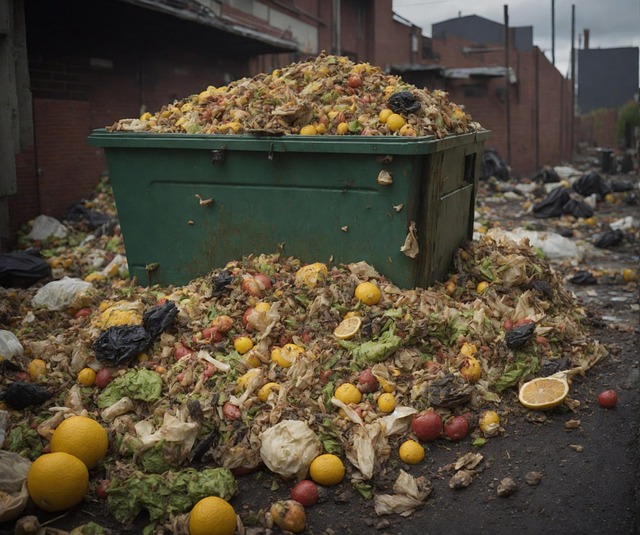In Boston, commercial e-waste recycling is a key environmental strategy, ensuring data security and reducing electronic waste. Reputable programs partner with specialized facilities using advanced data destruction techniques, setting an eco-friendly standard. This initiative promotes sustainability, local job growth, and responsible tech waste management while tackling increasing waste volumes and logistical challenges.
In today’s digital age, managing end-of-life electronics responsibly is paramount. Boston has emerged as a leader in commercial e-waste recycling, implementing robust processes that extend beyond mere disposal. This article explores the intricate world of safe data erasure services within Boston’s recycling framework. We delve into how these services ensure secure data destruction, highlighting their crucial role in protecting sensitive information and contributing to sustainable commercial e-waste recycling practices in Boston.
- Understanding Commercial E-Waste Recycling
- The Role of Data Erasure in Boston's Recycling Process
- Ensuring Secure Data Destruction for Businesses
- Benefits and Challenges of Boston's Recycling Initiatives
Understanding Commercial E-Waste Recycling

In the bustling landscape of modern business, electronic waste, or e-waste, is an increasingly pressing issue. Commercial e-waste recycling in Boston involves the responsible disposal and repurposing of electronic devices that businesses no longer need. This includes everything from outdated computers and servers to phone systems and office equipment. Proper commercial computer disposal MA isn’t just about getting rid of unwanted gear; it’s a critical step in protecting both the environment and sensitive business data.
When choosing Boston e-waste disposal services, it’s essential to look for recycling centers accepting business gear that adhere to strict environmental standards. These facilities employ specialized processes to ensure that all data is permanently erased from devices before they’re recycled or reused. This practice safeguards against potential data breaches and maintains the security of commercial information. In terms of sustainable practices, efficient e-waste management can lead to a reduced carbon footprint and resource conservation, making it an integral part of any responsible business strategy.
The Role of Data Erasure in Boston's Recycling Process

In Boston, safe data erasure plays a vital role in the city’s comprehensive e-waste recycling process. As a bustling hub for technology and innovation, Boston faces significant challenges when it comes to managing electronic waste responsibly. Commercial e-waste recycling programs have emerged as game changers, enabling businesses to dispose of old laptops, smartphones, tablets, and other electronics while ensuring sensitive data is securely erased. These programs not only protect personal information but also contribute to the city’s broader environmental goals by promoting sustainable practices in commercial recycling Massachusetts.
Boston’s commitment to e-waste recycling goes beyond individual consumer actions; it involves strategic partnerships with specialized recycling facilities that employ advanced technologies for complete data destruction. By integrating these processes, Boston is leading the way in responsible disposal, ensuring that electronic devices are recycled effectively while safeguarding the privacy of their owners. This approach aligns perfectly with the city’s efforts to keep up with the ever-evolving digital landscape and encourages businesses across various sectors to adopt eco-friendly practices.
Ensuring Secure Data Destruction for Businesses

In today’s digital age, businesses generate vast amounts of data, and ensuring secure data destruction is paramount to protecting sensitive information. When it comes to eliminating electronic waste, commercial e-waste recycling Boston offers specialized services tailored for companies seeking responsible disposal methods. By partnering with reputable IT equipment recycling hubs in Massachusetts, organizations can effectively manage their end-of-life electronics while adhering to stringent data security protocols.
Reputable recycling programs go beyond simple physical destruction, employing advanced techniques to sanitize and degauss hard drives, ensuring no trace of data remains. These commercial recycling programs Massachusetts implement strict guidelines, including secure data erasure, to comply with industry standards and regulations, thus fostering a sustainable environment without compromising confidentiality.
Benefits and Challenges of Boston's Recycling Initiatives

Boston’s recycling initiatives for commercial e-waste play a pivotal role in fostering a sustainable tech waste management system. One of the key benefits is the environmental conservation aspect; proper e-scrap recyclers in Boston ensure hazardous materials are handled and disposed of safely, preventing soil and water contamination. This city’s recycling centers accepting business gear have also created job opportunities and stimulated local economies through responsible tech waste disposal.
However, challenges remain. The increasing volume of electronic waste from businesses presents a complex logistical problem. Local Boston e-scrap recyclers must continuously innovate to meet demand while ensuring efficient and eco-friendly practices. Moreover, proper education and awareness campaigns are crucial to encouraging businesses to participate actively in these sustainable tech waste solutions Boston offers.
Boston’s commitment to both efficient commercial e-waste recycling and secure data erasure is commendable. By integrating robust data destruction practices into their recycling process, the city ensures that sensitive business information remains protected while promoting a greener digital future. While challenges exist, the benefits of these initiatives are clear, fostering a sustainable commercial e-waste recycling ecosystem in Boston and setting an example for other urban centers to follow.














